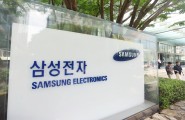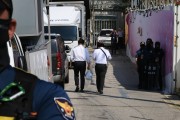
The ruling Democratic Party of Korea is facing backlash amid speculation that Friday's sharp drop in the Korea Exchange's main board Kospi may be linked to the Lee Jae Myung government's push to expand taxation to a wider scope of investors to address a tax revenue shortfall.
On Sunday, Rep. Park Sung-hoon of the main opposition People Power Party said in a statement that the ruling bloc has "launched a war against individual investors out of nowhere" through the proposed tax code revision, which he blamed for the Kospi falling 3.88 percent on Friday from the previous day's close, marking the sharpest decline in four months.
About 99.17 trillion won ($71.36 billion) in market capitalization evaporated on Friday in shares of the 850 listed companies on the Kospi, according to the Korea Exchange, a day after the liberal administration on Thursday introduced a tax code revision to broaden the tax base.
Also, about 95,000 people as of Sunday afternoon had signed an online petition posted just three days earlier on Thursday to call on the ruling bloc to slam the brakes on the tax bill revision ― meeting the requirement of 50,000 signatures within 30 days for the matter to be brought to a parliamentary review.
The proposed revision of the Income Tax Act suggested that those who at year-end hold at least 1 billion won in a listed company's shares will face a capital gains tax of at least 20 percent when realizing profits from selling shares before the end of the company's next fiscal year. The same investor cannot use losses in other shares to offset capital gains, under South Korea's tax code.
The online petitioner warned of a situation in which investors rush to sell off securities as the end of the year approaches ― even at a loss ― to offset capital gains tax, saying this would stymie the moderate rise of the Kospi.
"Is it realistic (to predict) that you'll be holding 1 billion won worth of shares (of a company by the year's end)? Most investors will start selling shares when their stock holdings of a company grow to around 700 or 800 million won," read the petition.
Currently, those holding shares worth 5 billion won or more are subject to capital gains tax on their sales of securities. This standard was set by disgraced ex-President Yoon Suk Yeol, whose government raised the bar for investors in South Korean companies to qualify as "major stockholders" under the Income Tax Act. In December 2023, the minimum threshold for a stockholder to be classified as "major" was raised to 5 billion won from the 1 billion won mark set in April 2020.
"Am I paying (more taxes) just because I have more in stocks, not because I took bigger gains? If so, I'll surely exit the South Korean stock markets and turn to ones in the United States," the petition also read.
The proposed tax code revision ― predicted to collect 35.6 trillion won in taxes ― would also raise the securities transaction tax rate from 0.15 percent to 0.2 percent.
Na Jeong-hwan, a strategist at NH Investment & Securities, said in a note to investors Friday that fears of tax code changes "sparked questions about the government's policy to boost the stock market."
The ruling party appears to have mixed views over the new tax code proposal.
Democratic Party Rep. Jin Sung-joon, who leads the party's policymaking process, downplayed concerns that the tax code changes could stoke a bear turn in the stock market.
Referring to an underperformance in domestic stocks under the Yoon administration despite the relaxed capital gains tax rule, Jin said via Facebook on Saturday, "Many investors and experts are saying that if we change who is subject to capital gains by rolling back (the tax relief of the Yoon administration) our stock market could experience a collapse, but precedents suggest otherwise."
Before Friday's plunge, a Facebook post on Thursday by Rep. Lee So-young of the Democratic Party raised doubts that those holding 1 billion won in shares of a company should be deemed major stockholders for capital gains taxation, adding that the move could disrupt investment, while its impact on tax revenue remains unclear.
Rep. Kim Han-kyu of the Democratic Party also said Saturday that achieving fairness in taxation schemes is important, but said now is the time to focus on the Lee administration's campaign pledge to push the Kospi to 5,000. The Kospi closed at 3,119.41 points on Friday.
consnow@heraldcorp.com




